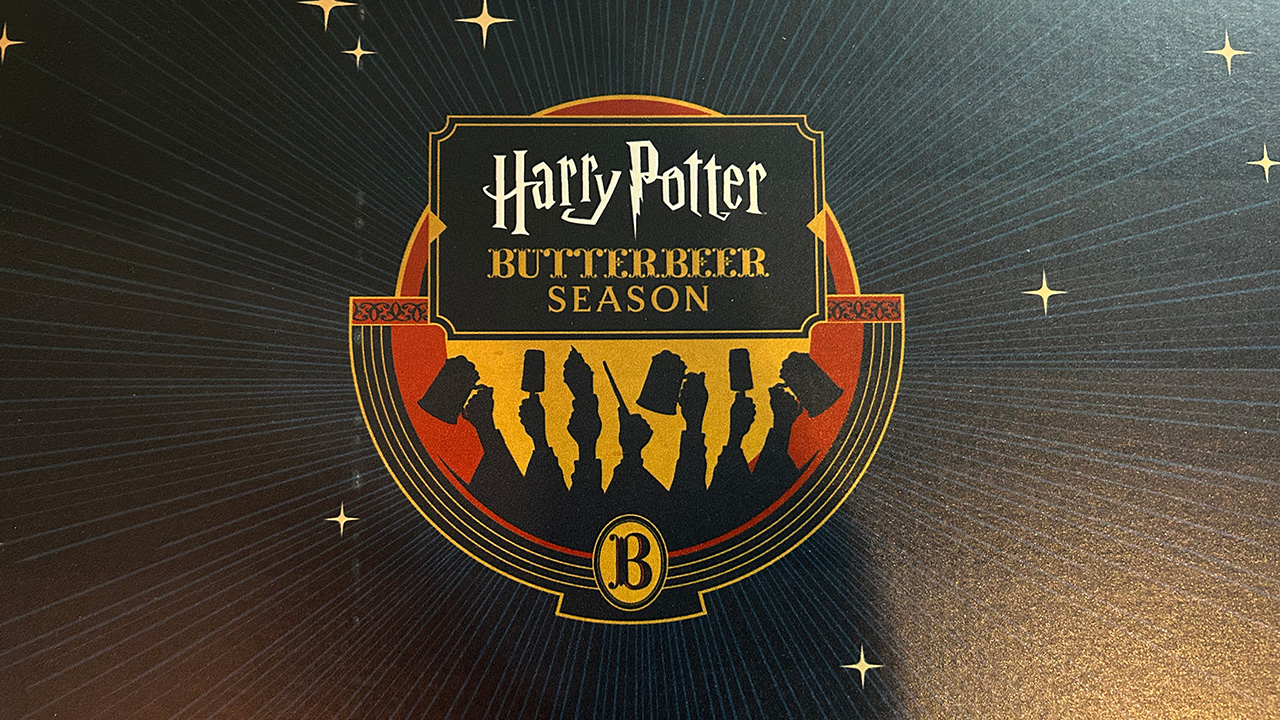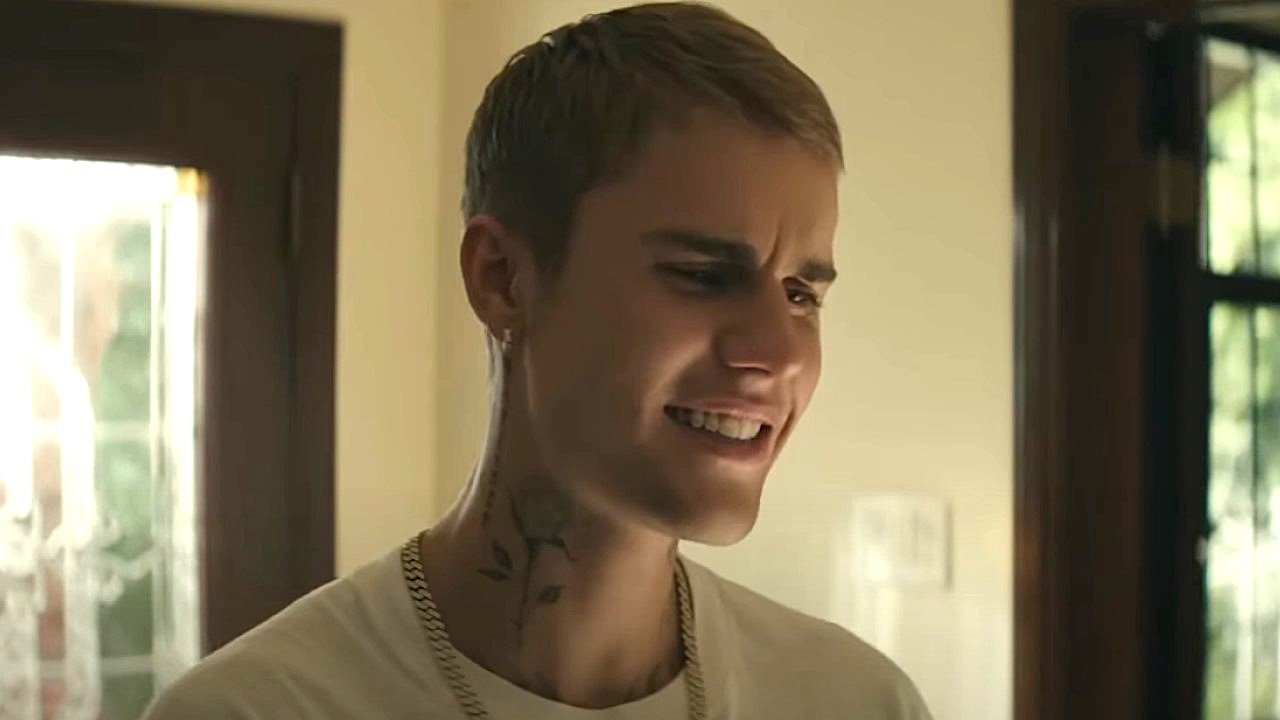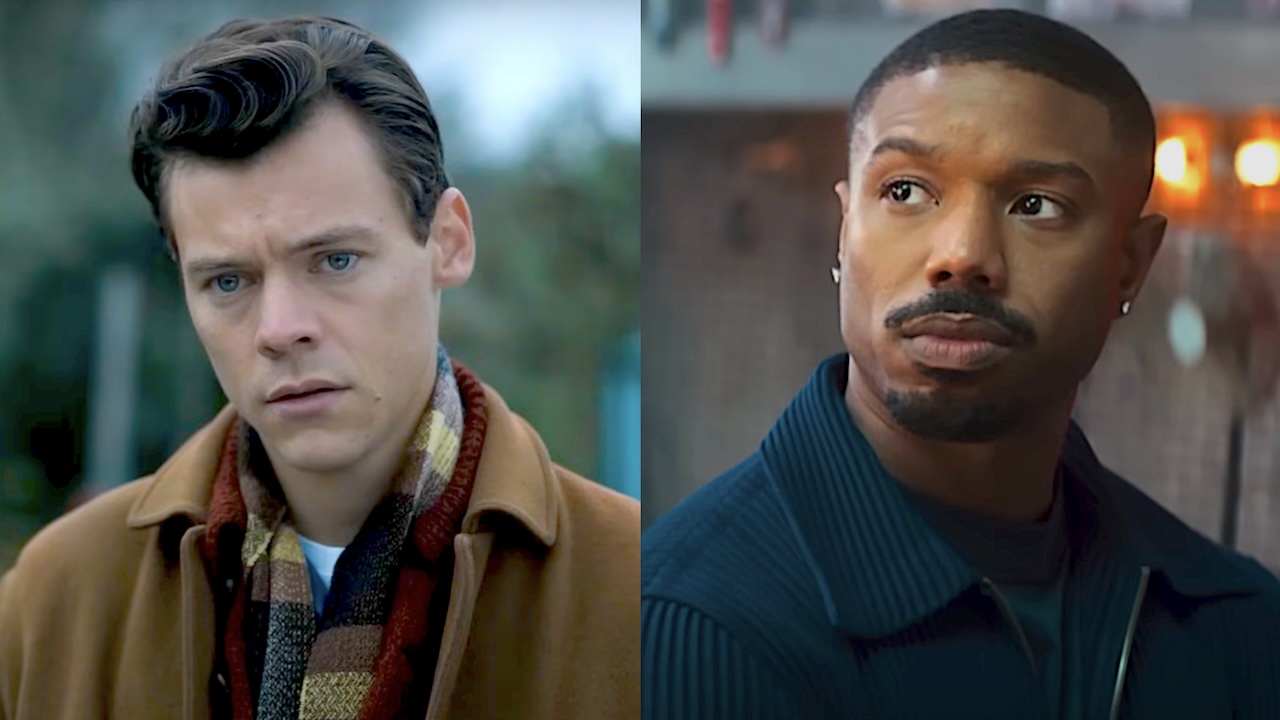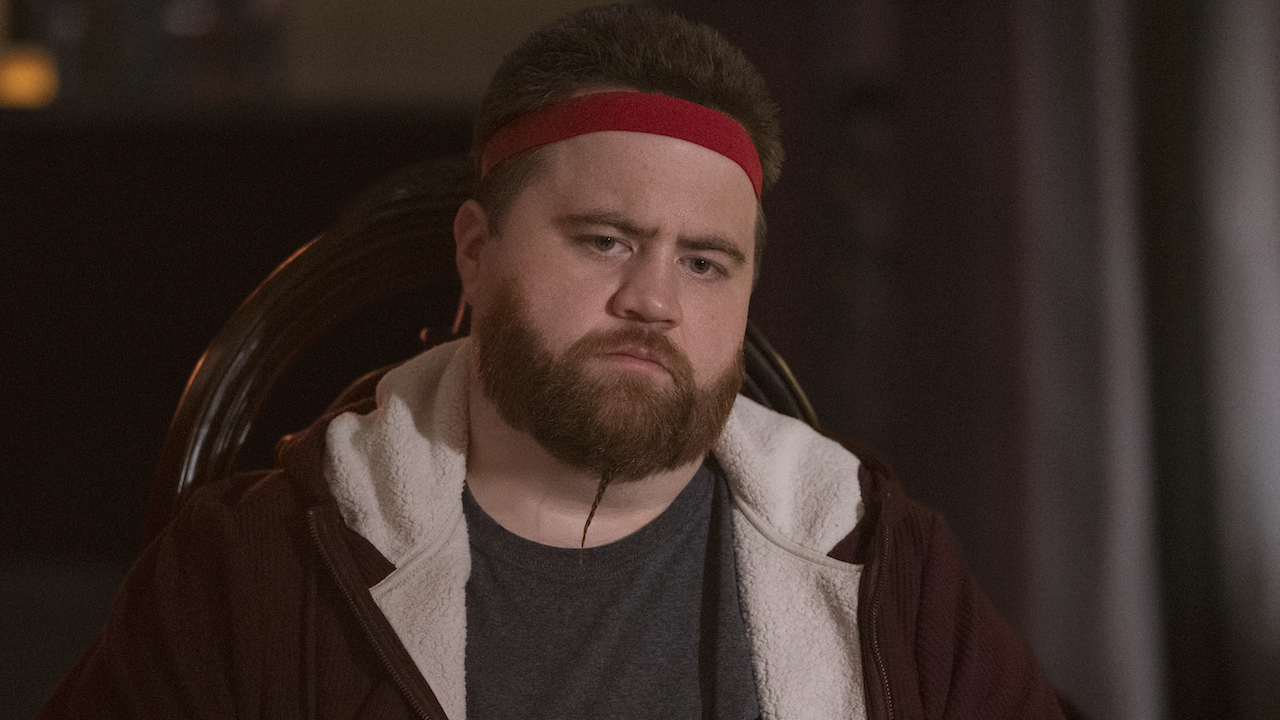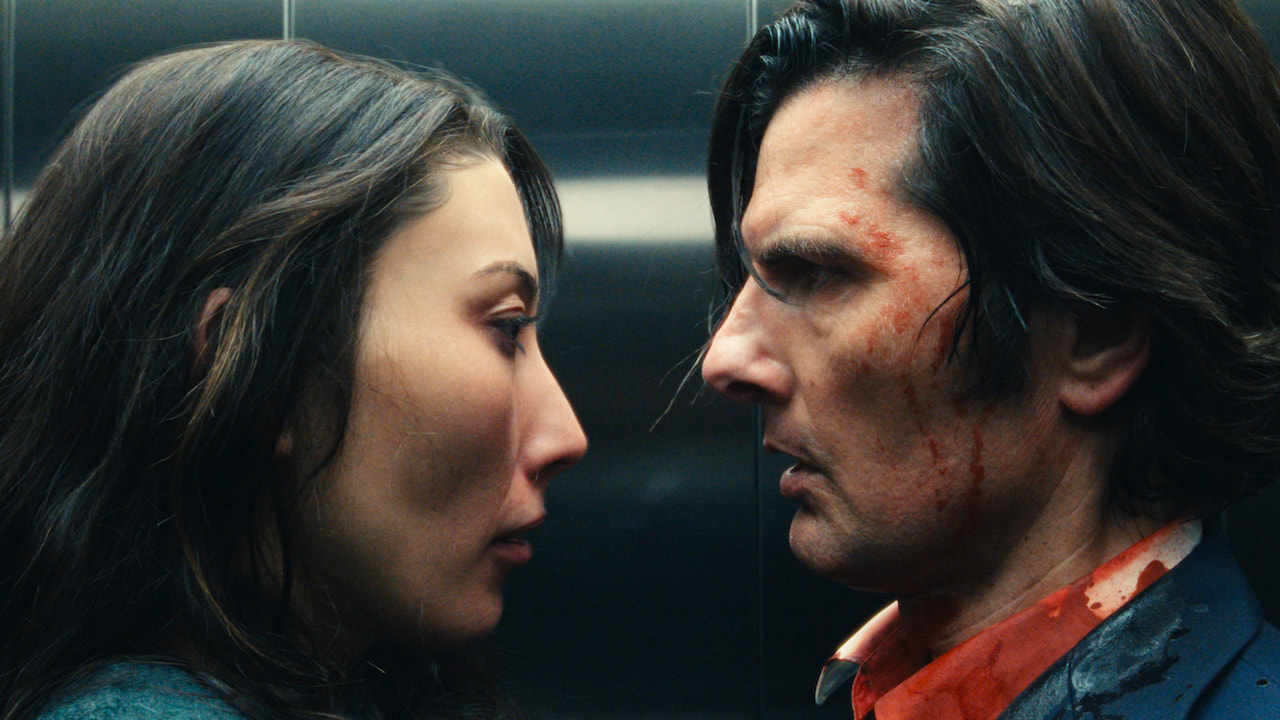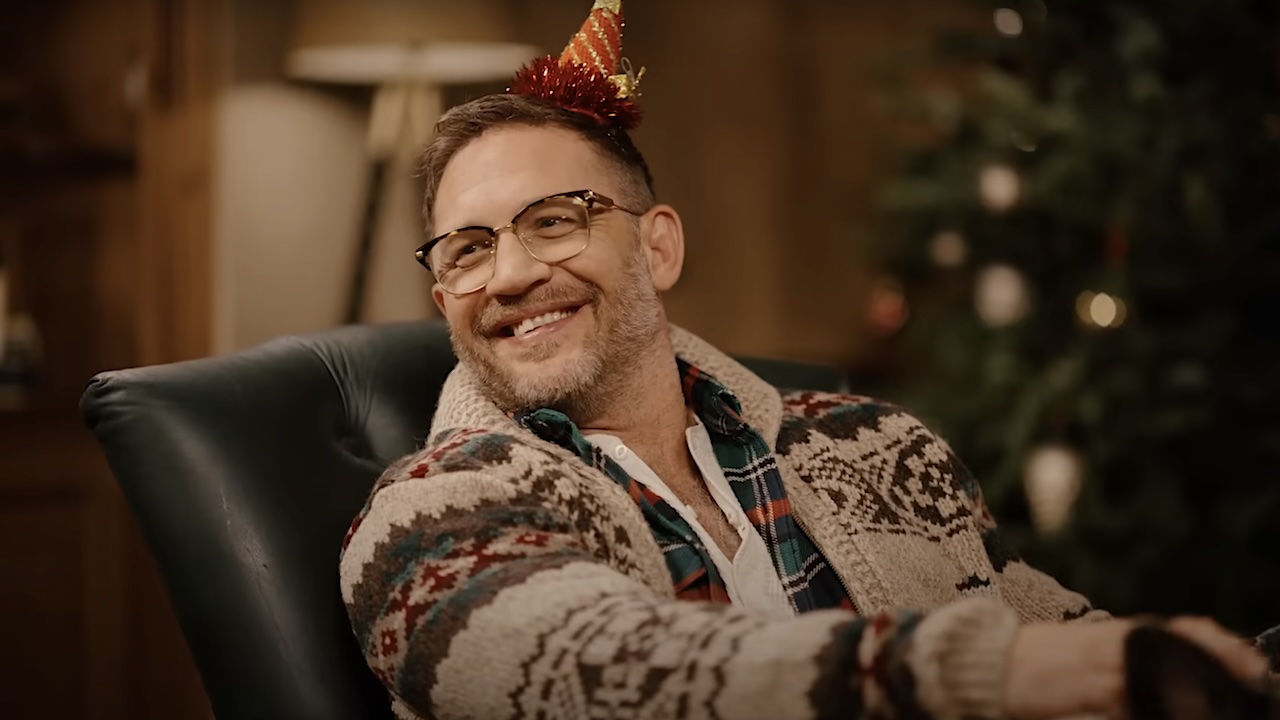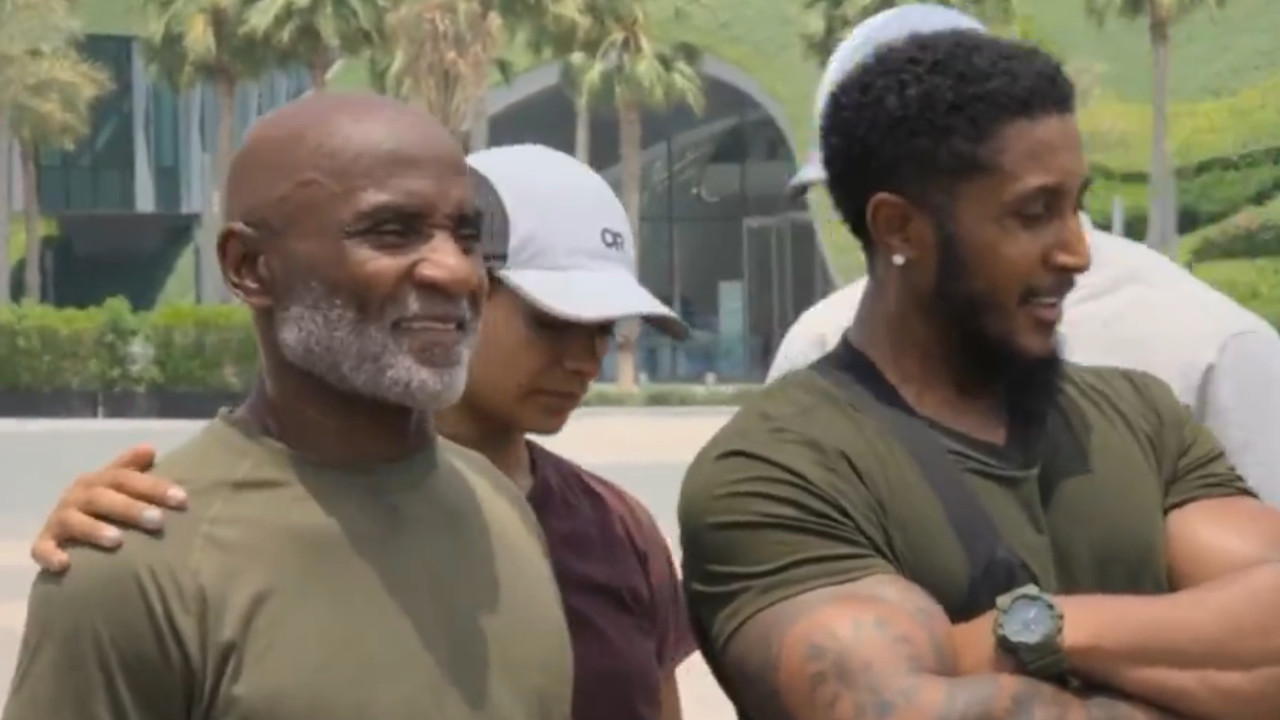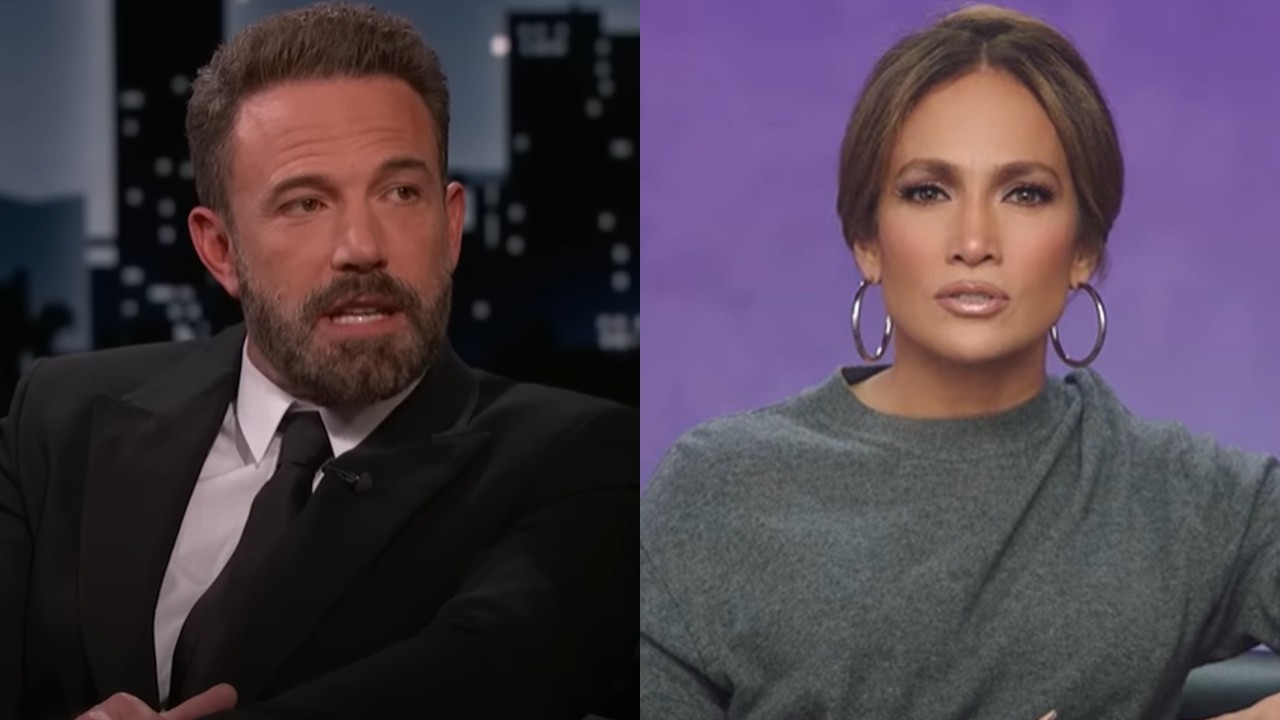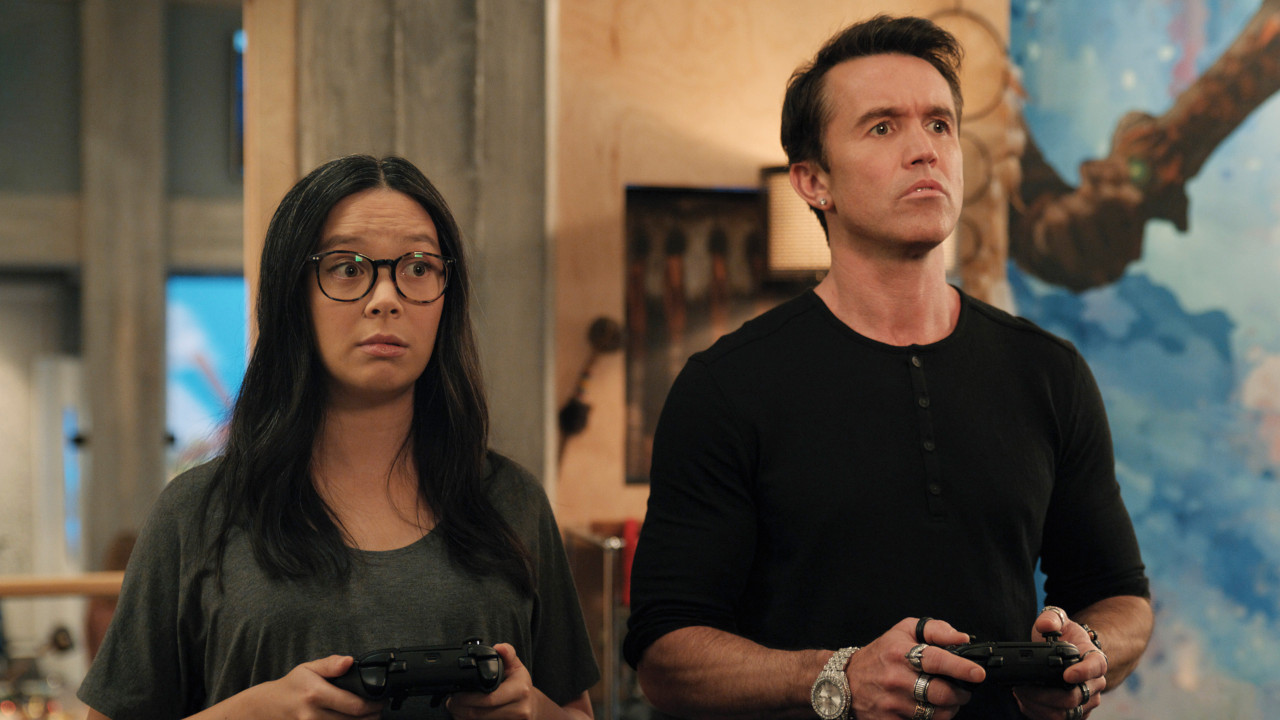What The IT Miniseries Did Better Than IT Chapter Two
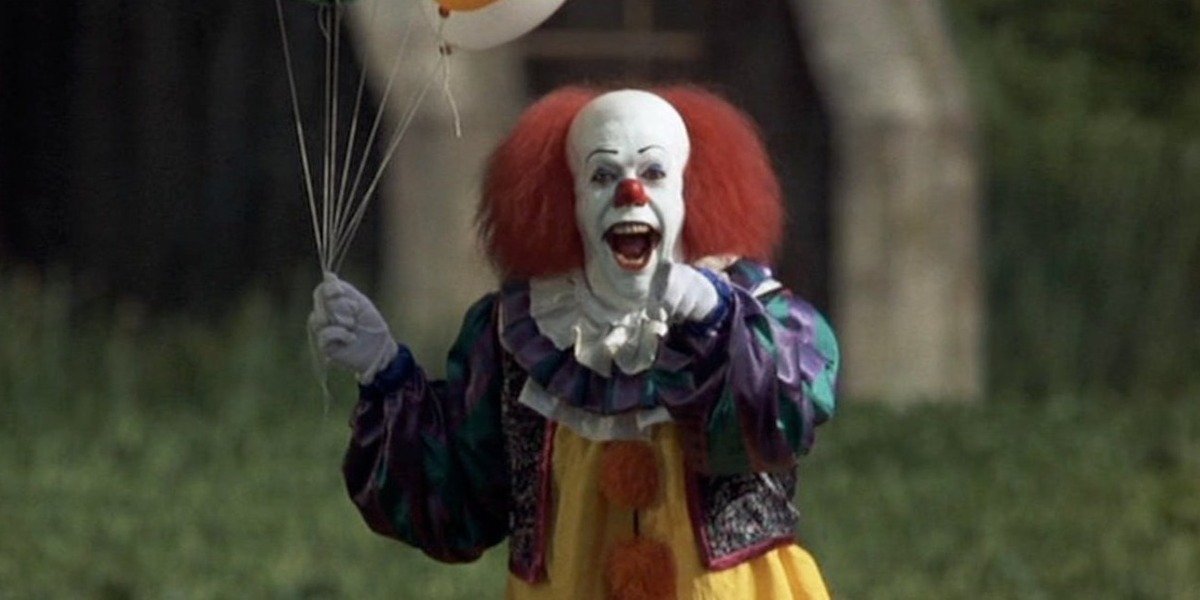
Spoilers ahead for IT Chapter Two, the 1990 IT miniseries, and Stephen King's IT novel for good measure.
IT Chapter Two finally hit theaters this month as the long-awaited sequel to 2017's IT. The second part of the two-movie adaptation of Stephen King's massive and complicated novel, it would be the first complete telling of the full story since ABC's 1990 IT miniseries. IT Chapter Two and the IT miniseries went about adapting the novel in very different ways, although surprisingly both had similar runtimes. Chapter Two ran for a little under three hours to tell the second half of the story, and IT ran for just over three to tell the whole thing.
Despite the fact that the miniseries was in a huge time crunch to tell the full intertwined past and present stories compared to the mostly split movies, I would argue that the miniseries as a whole worked better than IT Chapter Two in a lot of ways. Was IT Chapter Two a thrill ride that will reawaken fears of clowns all over the world? Probably. Would it have been better if it learned some of the lessons of the miniseries? I think so. Read on for a rundown of what the miniseries did better than IT Chapter Two!
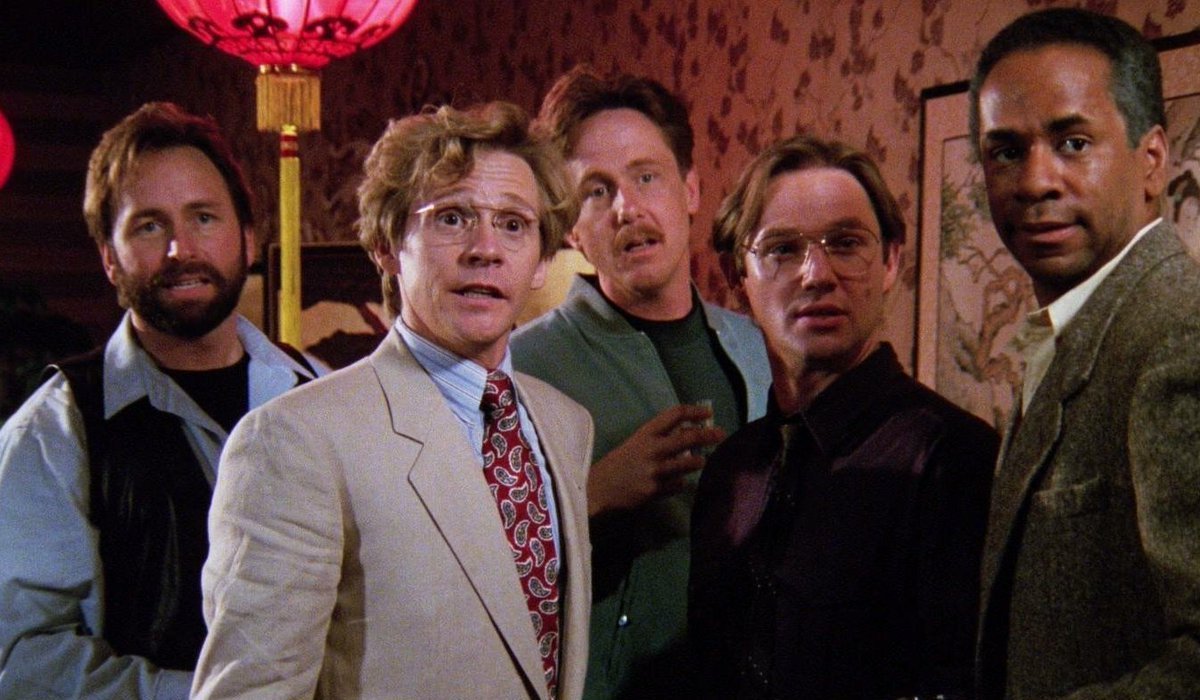
Setting In 1990 vs. 2016
The IT miniseries set the past action in 1960 and established that IT returned every 30 years, making the adult storyline go down in 1990. While this obviously meant that it took place in the present for people watching when it first premiered on ABC, the 1990 setting makes as much sense now as it did then.
There were no smart phones in 1990, so of course there were no pics of Pennywise going viral or tweets and texts about the creepy clown lurking around town. Admittedly, adult Ben did have a cell phone in the IT miniseries, but it was such a brick of a device that he probably could have done some damage to Pennywise by throwing it at IT. In 1990, it made sense that nobody really knew or believed.
To contrast, IT Chapter Two was set in 2016, a solid 27 years after the events of the previous movie. The 1989 setting had worked, partly because it was far enough in the past and partly because Finn Wolfhard will be forever associated with that era. It’s the 2016 setting that doesn’t work. Somebody would have noticed something and gotten attention for it, and surely 2016 kids would have more of a sense of stranger danger.
It was hard enough to believe that the kid with the skateboard in IT Chapter Two was allowed to chat with a screaming Richie for more than a few moments without his parents whisking him away, let alone everything else! The 2016 setting had me half expecting one of the Losers to order an Uber or say “There’s an app for that!” at some point. Not so with the 1990 miniseries!
CINEMABLEND NEWSLETTER
Your Daily Blend of Entertainment News
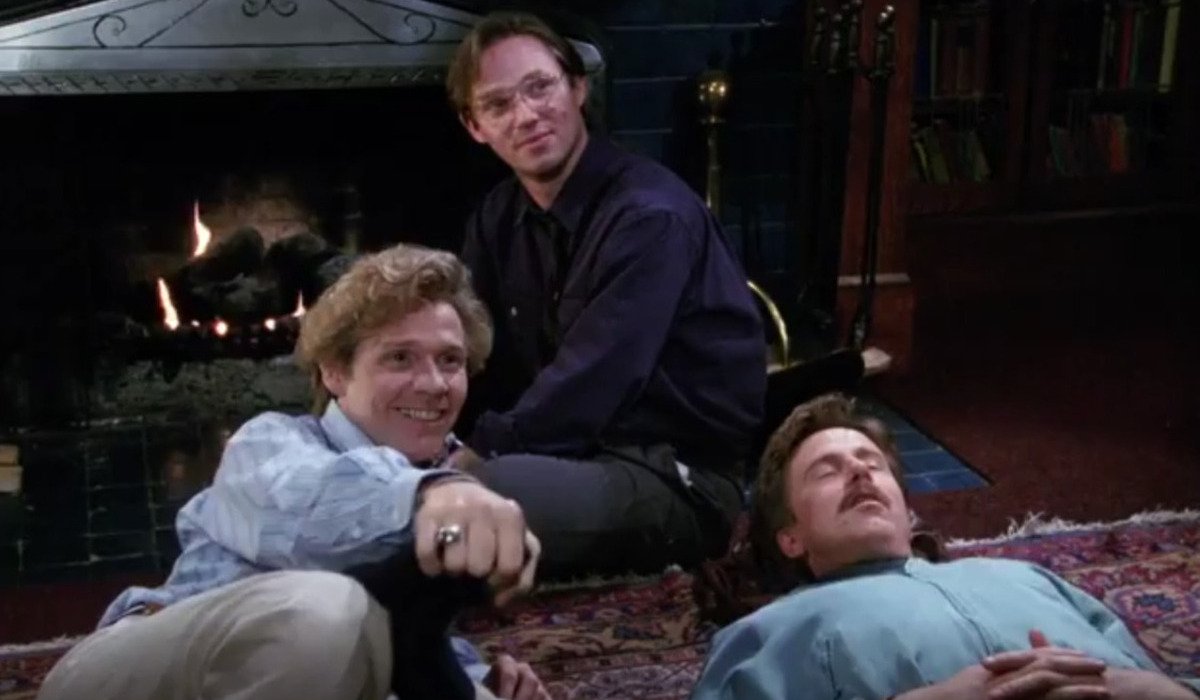
Acknowledged The Success Of The Losers
In IT Chapter Two, the six Losers who left Derry became fabulously rich, successful, and even famous in some cases. Their lives obviously weren’t perfect, but they were objectively successful. The movie never acknowledged that there might be something supernatural at work guaranteeing them success as well as depriving them from having kids. Admittedly, not everybody has to have kids by 40 or at all, but it is a plot point from the IT book.
16 Big Differences Between It Chapter Two And Stephen King's Novel
The IT miniseries had Mike point out that everybody of the Losers who left Derry went on to be successful in pretty much everything except having kids, although Bev and Eddie were in very tough situations with their relationships. The series didn’t dwell on the supernatural forces at work in the Losers’ lives, but they were significant enough to be mentioned. In IT Chapter Two, it felt like a huge Hollywood coincidence that all of these beautiful people were fabulously successful with no kids. In the miniseries, it felt more sinister.
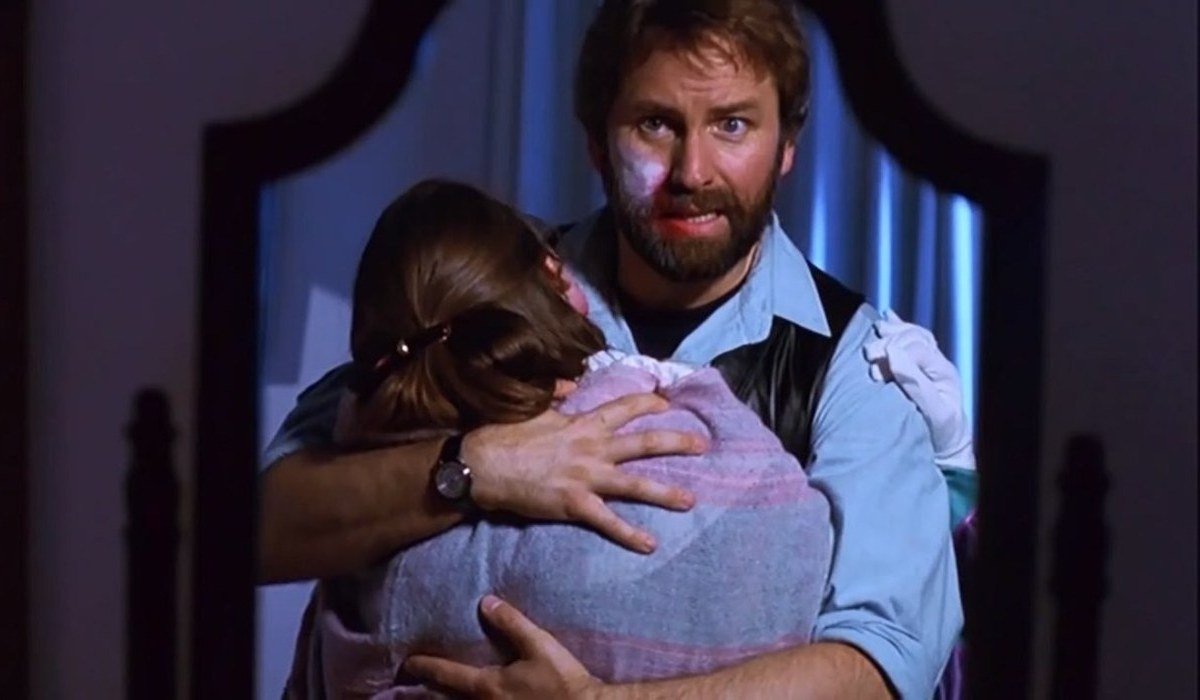
The Miniseries Did More With Less
The miniseries had less of just about everything except run time when compared to IT Chapter Two. The two parts of the 1990 IT had a made-for-TV budget, had to deal with commercial breaks and the restraints of airing on ABC, and had to cram the story from an 1100+-page book into 192 minutes. IT Chapter Two had a budget of around $70 million (according to Business Insider), could run without commercial breaks, do pretty much whatever, and only had to pack in half of that 1100+-page book into 169 minutes.
Surely IT Chapter Two would have to have the edge, right? Not so. The miniseries balanced and transitioned between the flashbacks and the present seamlessly without needing de-aging technology for the kids, and it made up for the lack of a sky-high budget by crafting a seriously creepy atmosphere, with unnerving performances and a cohesive story. IT Chapter Two fell back on what it could do with that big budget and how scary it could get with its R rating. The made-for-TV series simply did more with less.
I’ll admit that the special effects in the miniseries climax of the Losers battling IT in its spider form in the miniseries didn’t really age all that well, but can we really hold that against IT? While IT Chapter Two was packed with jump scares and on-screen frights, the IT miniseries is the stuff of nightmares by virtue of what it didn’t show.
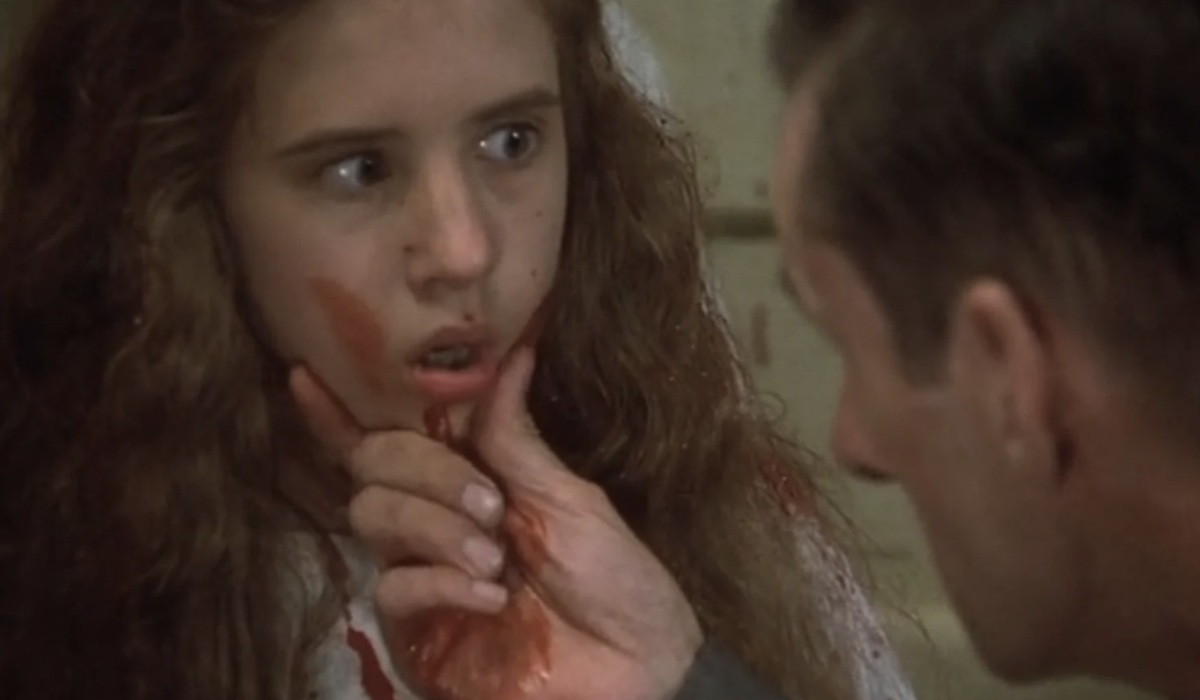
No Need For Blood And F-Bombs
I loved Richie repeating that the Losers need to "kill this fucking clown" in IT Chapter Two as much as anybody, and the shout-out to The Thing wouldn't have happened if Bill Hader hadn't been allowed to drop an F-bomb. I jumped when Bev got blasted in the face by blood in the first IT movie, and Bev nearly drowning in a bathroom stall full of blood in Chapter Two was the creepiest use of gallons of blood since The Shining.
Obviously the IT miniseries couldn't feature buckets of blood on ABC in 1990, and it didn't even try to kinda sorta almost let characters say "fuck," like another show attempts nowadays. Bev didn't get blasted in the face by blood, but rather had to deal with it bubbling and splashing up the drain at her while the dead children called to her from the pipes and her dad loomed threateningly over her.
Miniseries Bev's terror was contagious as she cowered in fear of both the blood and her dad, and it was genuinely scary rather than a jump scare. And that's only one example! Remember the balloons that popped and splattered just a bit of blood everywhere? The Losers of the miniseries may not have been able to give a fuck about gallons of blood, but their story was even more freakin' scary in my book.
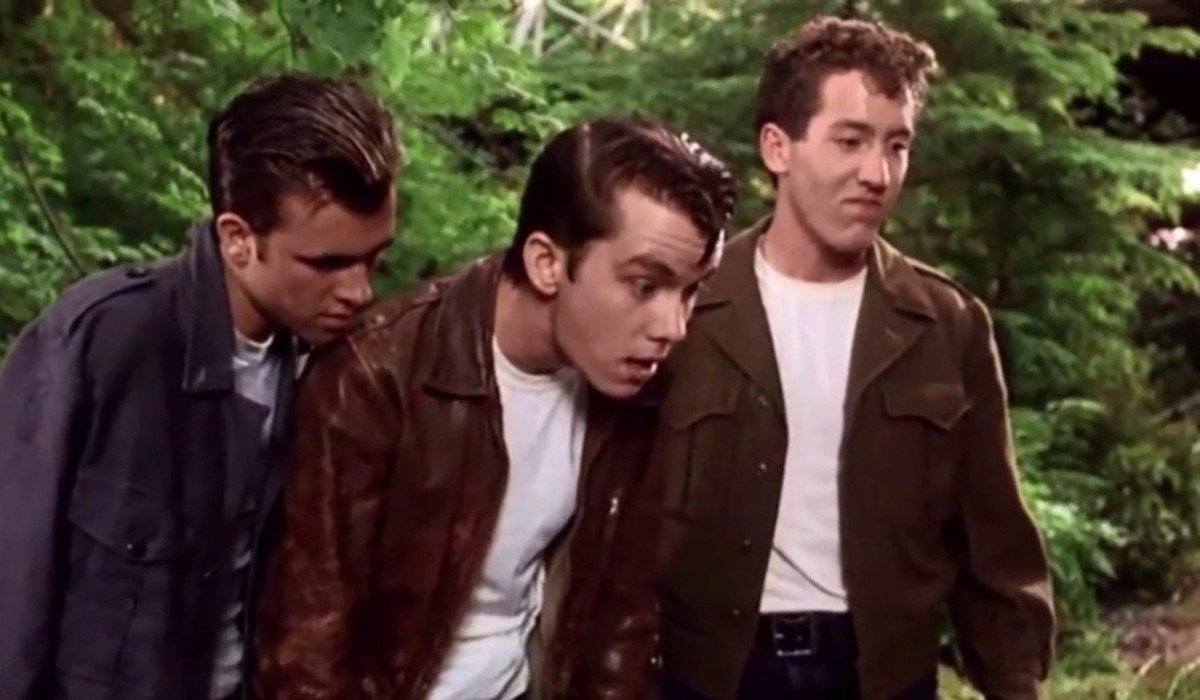
Henry Bowers And Co.
IT Chapter Two answered the 2017 IT question of what happened to bully Henry Bowers when he was lost chasing the Losers into the sewers after killing his dad with the switchblade he received from IT. Henry basically washed out of the sewers, went home, and was arrested for killing his dad. Just his dad. Then, he was institutionalized in Juniper Hills Asylum until IT sent his zombie teen friend to return his blade, free him, and get him back to Derry to hunt the Losers… for some reason. Henry was just kind of… there.
The IT miniseries turned Henry Bowers and his friends into genuine villains, and Henry genuinely mattered in both the past and present timelines. After the Losers beat IT in 1960 and the killings stopped, Henry was blamed for killing the kids. When 1990 rolled around, the time came for Losers vs. IT 2.0, and IT arranged for Henry to be sprung from Juniper Hills with the explanation that Henry could kill the Losers because he was real, whereas IT couldn’t if they stopped believing. IT needed Henry, so he didn’t feel like a waste of screentime.
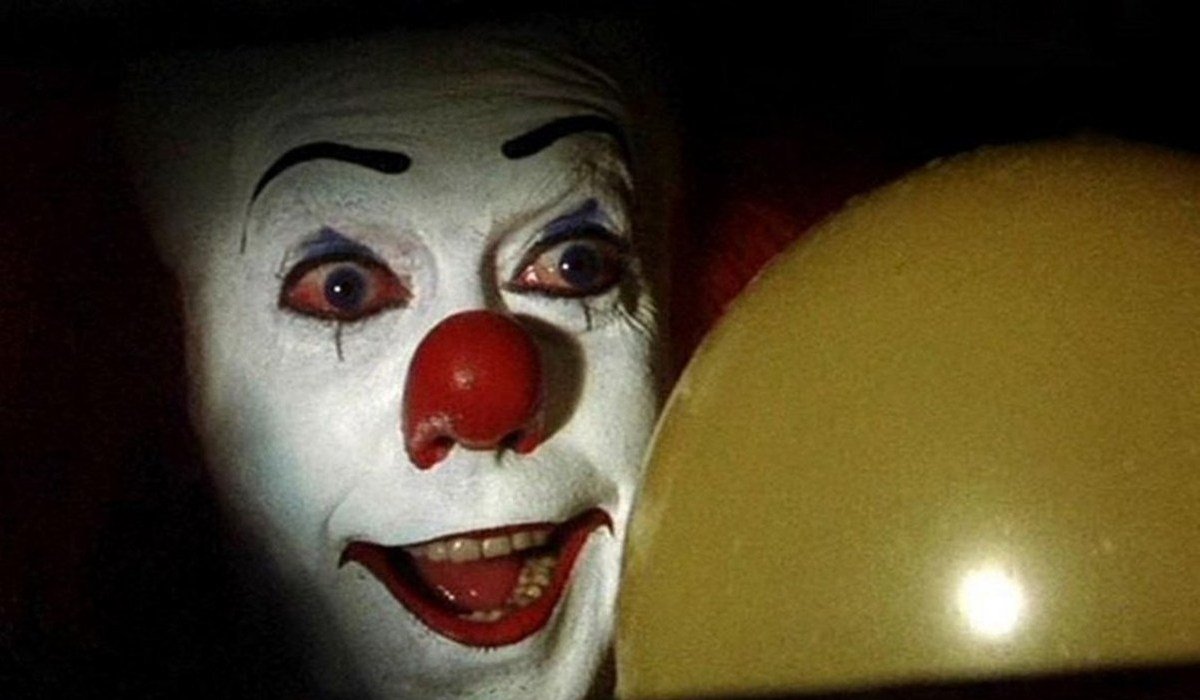
Tim Curry As Pennywise
Look, Bill Skarsgard was great as Pennywise the Dancing Clown. If anything from the two IT movies will ever give me a nightmare, it will be Skarsgard's trick of rolling his eyes in two different directions at once. Skarsgard's Pennywise is a fantastic movie monster, who totally sold the drooling and chomping and creepy contortionism as IT hunted and ate kids. I sure wouldn't want to meet Skarsgard's Pennywise in a dark alley!
Tim Curry's Pennywise isn't just a movie monster, and not just because he wasn't transforming with the best special effects the 21st century can provide. At first glance, Curry as Pennywise isn't even scary. He's just a clown. But then, you give a second glance, and you hear him speak, and he's the jolly stuff of terrible nightmares. I look at Tim Curry's Pennywise, and I believe him as somebody who could trick kids into coming close and then unleash the horror. He doesn't need the effects.
Bill Skarsgard's Pennywise is a great murder clown. Tim Curry's Pennywise is IT.
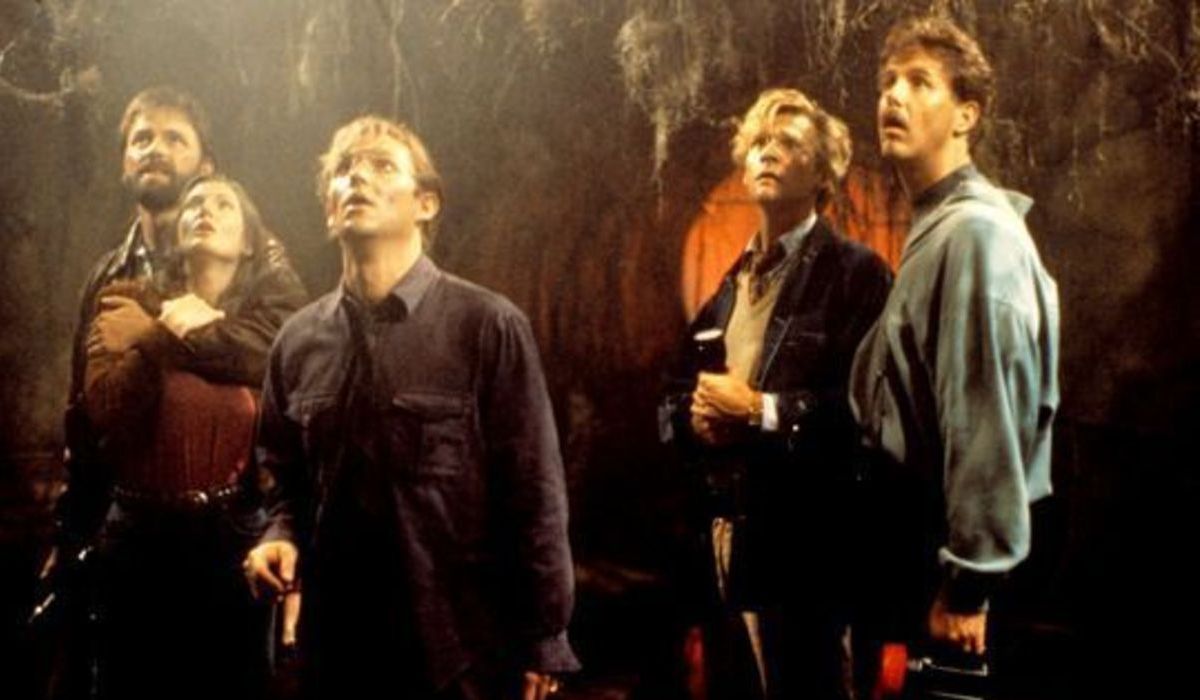
No Ritual of Chüd In The Miniseries
As somebody who loves almost the entire IT novel by Stephen King -- aside, of course, from That Scene -- I’ve always been hesitant about seeing the final confrontation between the Losers and IT adapted for the screen. What works on on the page doesn’t always work on screen, and the Ritual of Chüd is hard to follow even when spelled out in the novel. I give IT Chapter Two a lot of credit for even attempting to pull it off. It was a bold and ambitious move.
It also didn’t totally work and stretched out the third act into something that was probably longer than it needed to be. The miniseries didn’t even bother trying to convey how the book’s Ritual of Chüd gets rid of IT, and instead basically just had the Losers physically kill the creature. Does the spider with its 1990 effects hold up well in 2019? Not really. Does the miniseries flow better without an attempt at the Ritual of Chüd? Definitely.
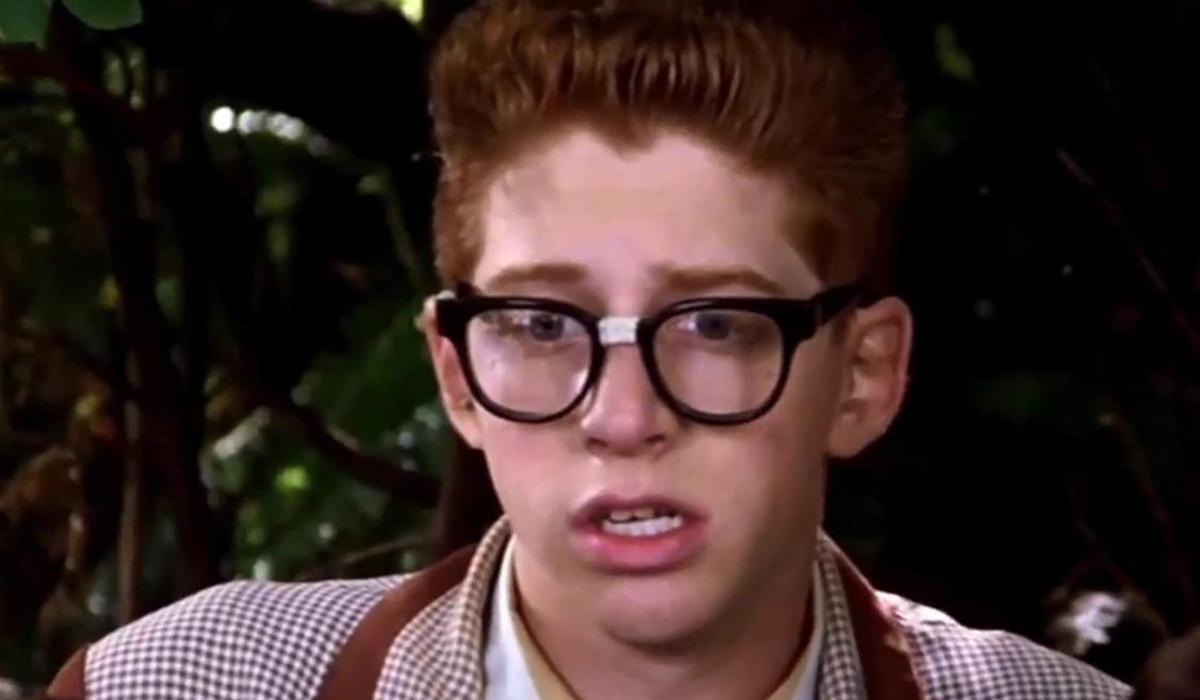
"Beep Beep, Richie"
If you only know IT from the events of the two recent movies -- and that's totally fine -- then Pennywise saying "Beep beep, Richie" in Chapter One was probably a little weird, and Bev saying it again in Chapter Two was a callback that was also a little weird. "Beep beep, Richie" actually comes from the IT novel, and was used by the Losers as a mostly affectionate (but sometimes annoyed) way of basically telling Richie to shut up.
IT And IT Chapter Two Totally Screwed Up 'Beep Beep, Richie,' And That Sucks
The Losers in the miniseries use it frequently just as they did in the book, so it made sense whenever they dropped a "Beep beep, Richie." There was context for it, rather than two throwaway lines over the course of about five hours of movie content. It was an easy thing to get right, and the miniseries did it. IT Chapter Two (and IT) did not, and it rubs a lot of book fans the wrong way.
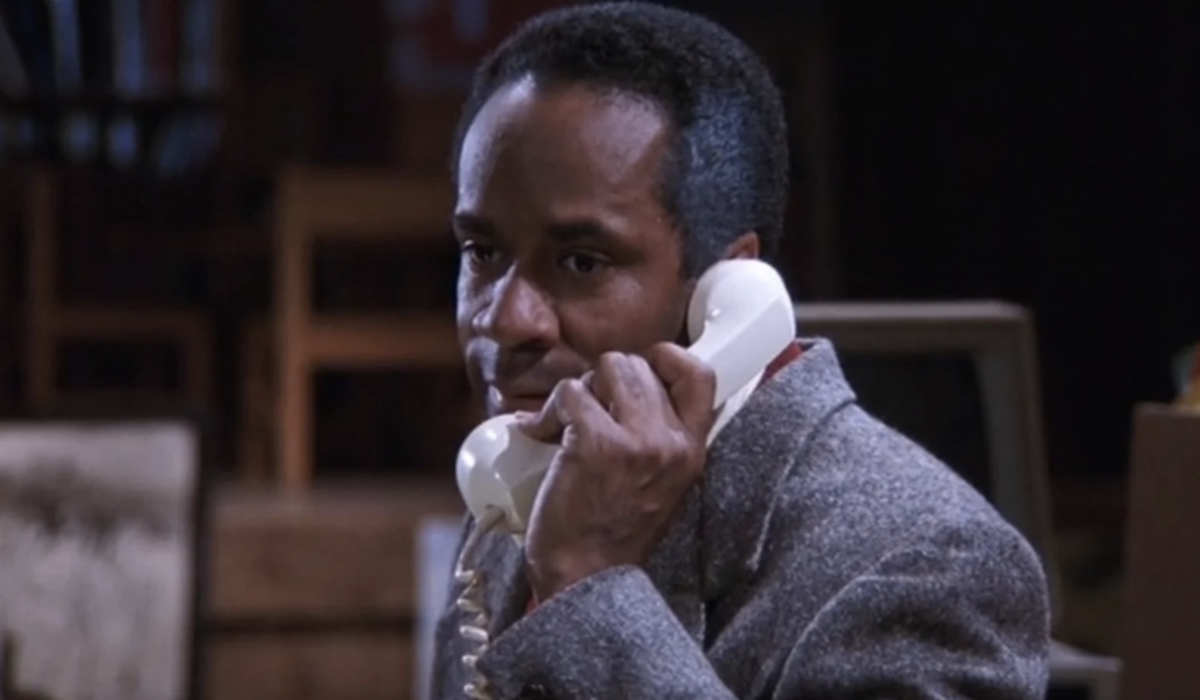
More Mike Hanlon
Poor Mike Hanlon is the least represented Loser in the two IT movies, with the exception of Stan, and that's only because Stan was only alive as an adult for a few minutes. Mike didn't join the Losers as kids until after the rock fight, so he was missing from a bunch of the flashbacks in the second movie. When he contributed in the present in Chapter Two, he was often lying to the Losers to try and get them to help fight IT. Understandably lying, but lying. He was basically an embodiment of exposition.
This is a major contrast to the book, where Mike is key to the defeat of IT and has whole chapters devoted to his studies of the history of Derry. Those chapters couldn't be adapted in the miniseries any more than Chapter Two, but the miniseries does bring the Losers together sooner as kids and gives Mike more to do as an adult. Mike is a great character, and the miniseries gives way more of him.
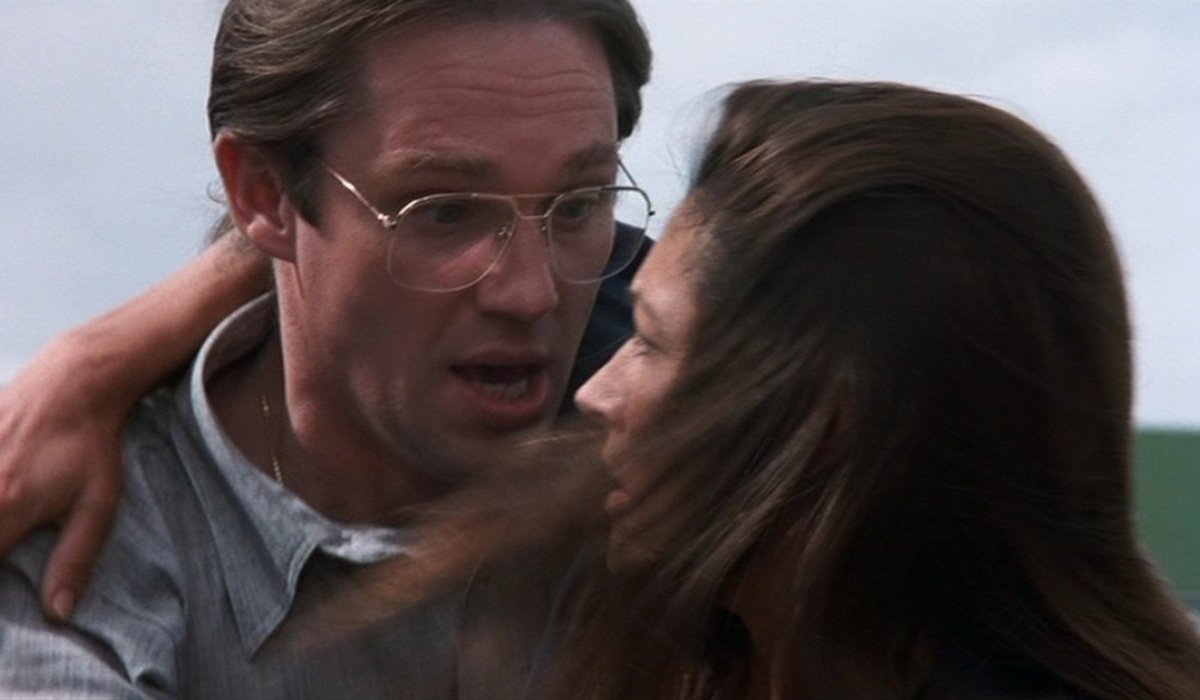
Audra Is Relevant
Remember Audra Phillips Denbrough in IT Chapter Two? If not -- and it's understandable if you don't -- she was the woman who looked vaguely like Beverly and had a couple of lines with Bill before he kept his promise by returning to Derry. And that was it. In the book, Audra has a huge role, as she decides to chase Bill to Derry out of concern for him. Her efforts go wrong when she's kidnapped and taken into the sewers, and she's part of why Bill makes some mistakes in the final showdown against IT. With the help of Bill and his big silver bike, she recovers from her post-IT catatonia.
Audra has a much larger role in the IT miniseries than in IT Chapter Two. The miniseries did shave bits of her story and cut an entire arc that had Bev's husband kidnapping Audra on IT's bidding, but she mattered and she raised the stakes. IT was better as a miniseries for having more Audra, and Chapter Two could have been a lot better with a little bit more of her.
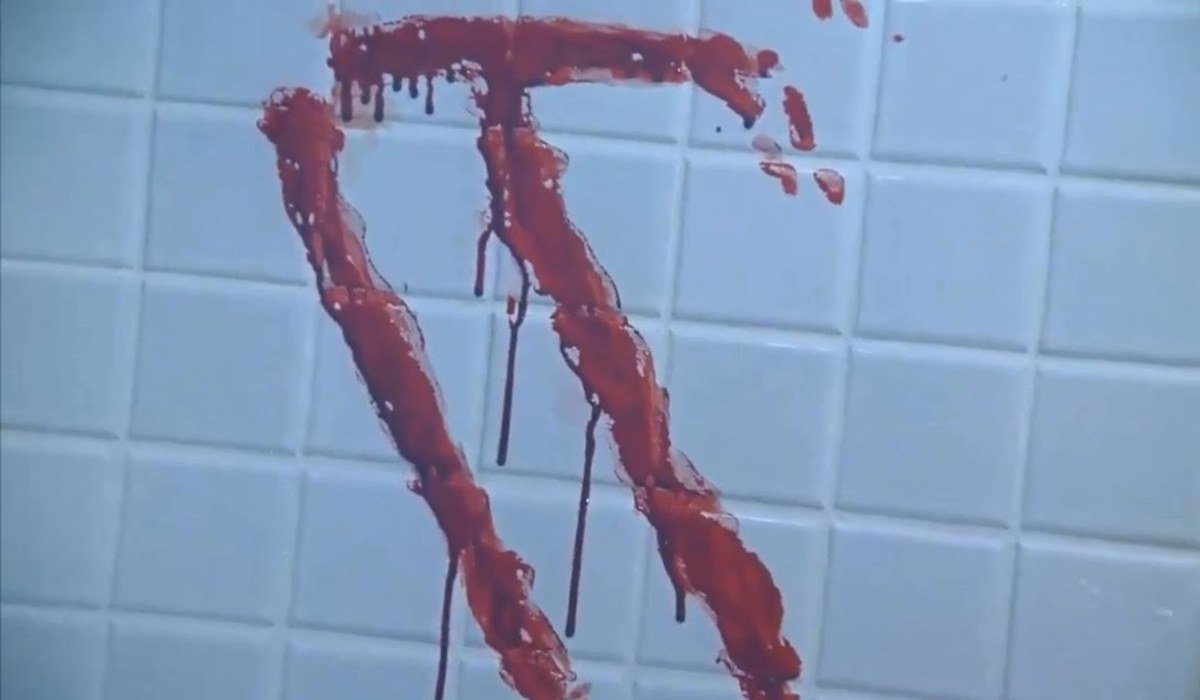
A Less Happy Ending
IT Chapter Two had a surprisingly happy ending, all things considered. Eddie's death couldn't be undone, but even Stan's suicide was given a silver lining. As it turns out, he wrote notes to the Losers before killing himself, explaining that he knew he would be a weak link in their ranks and they couldn't stand firm against IT if he was with them. Stan's death became a sacrifice rather than a tragedy.
Ben and Bev were making out underwater shortly after Eddie died -- although I'd say they earned it -- and the Losers got to keep their memories. Richie seemed more open to facing his sexuality, despite his devastation that Eddie was dead. In the miniseries, the ending was bittersweet. While the same survivors as Chapter Two lived and there was that little bit of almost magic that brought Audra back from her catatonia, they began losing their memories of each other and their good times. Ben and Bev only ambiguously ended up together.
The characters of IT Chapter Two who made fun of Bill for ending his books on downers wouldn't have liked the ending of the miniseries or the book for being pretty dark, but the story of IT doesn't feel like one that should be neatly tied up with mostly happy endings. There should be a cost to them all beyond the deaths of Eddie and Stan. Not to be cruel, but none of the Losers had even seen each other for nearly 30 years.
If you're now in the mood to watch or rewatch the IT miniseries now, you can find it streaming on Hulu. As for IT Chapter Two, the film is playing in theaters now.

Laura turned a lifelong love of television into a valid reason to write and think about TV on a daily basis. She's not a doctor, lawyer, or detective, but watches a lot of them in primetime. CinemaBlend's resident expert and interviewer for One Chicago, the galaxy far, far away, and a variety of other primetime television. Will not time travel and can cite multiple TV shows to explain why. She does, however, want to believe that she can sneak references to The X-Files into daily conversation (and author bios).
